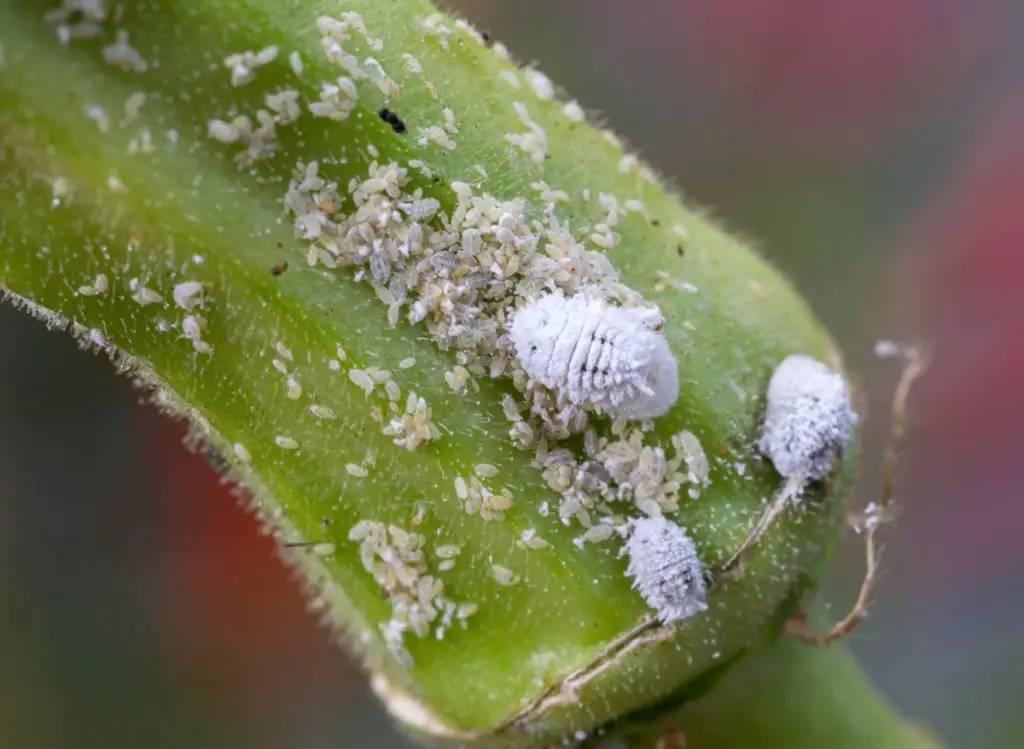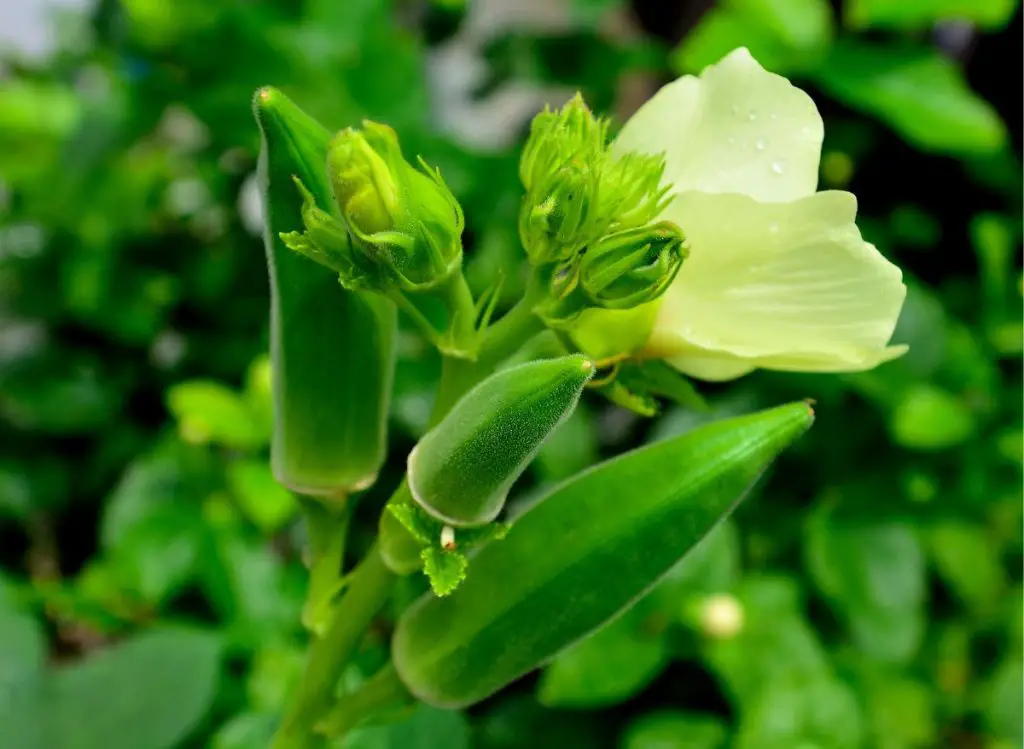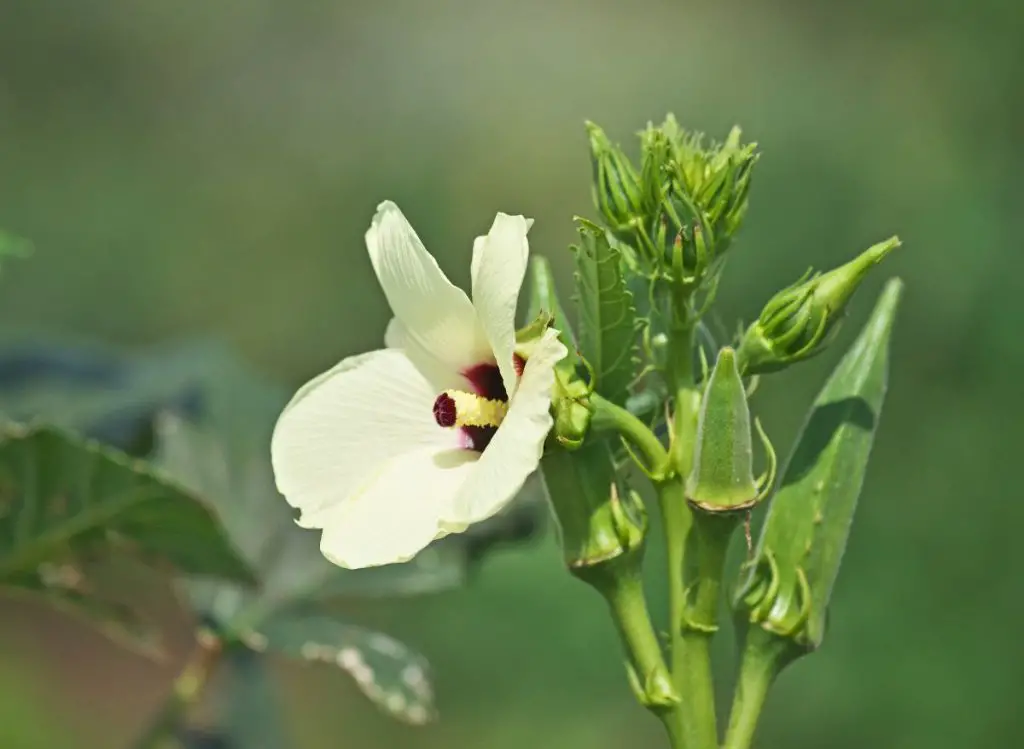
Okra is a delicious and nutritious vegetable that is popular in many cultures around the world. Okra is known to be rich in magnesium, antioxidants, fibre, folate, and vitamins C, K1, and A (Source: Healthline)
Unfortunately, okra plants are also a target for many pesky bugs, including aphids, spider mites, and stink bugs, that can damage or even kill the plants. These bugs can damage the okra, stunt its growth, and even kill the plant if left unchecked
If you want to enjoy a healthy and productive okra harvest, I encourage you to take the necessary steps to keep bugs away from your plants. In this post, I will share some of the most effective tips and tricks for keeping your okra bug-free so that you can enjoy a bountiful harvest.
1- Start With Healthy Plants
I believe that one of the best ways to prevent bug infestations in your okra plants is to start with healthy plants that are well-established.
I encourage you to choose plants that are free from disease or pest damage and are already producing pods.
In general, healthy plants are better able to resist bugs and other stresses, so you will be less likely to have problems later on.
2- Use Natural Pest Control Methods
I found that one of the best ways to keep bugs off your okra is by using natural pest control methods, which means avoiding the use of harsh chemical pesticides that can be harmful to both the bugs and the environment. Instead, I encourage you to try using natural remedies such as neem oil, garlic spray, or insecticidal soap. These remedies are effective against common okra pests and are safer for your plants and the environment.
There are many natural insect repellents that can help to keep bugs away from your okra plants without using harmful chemicals, including neem oil, garlic spray, and diatomaceous earth. You can apply these natural repellents directly to the plants or mix them with water and spray on with a garden sprayer.
3- Encourage Natural Predators
Another way effective way to keep bugs off your okra plants is to encourage their natural predators to visit your garden.
For example, ladybugs, lacewings, and other beneficial insects can help control pest populations, so it’s a good idea to keep your garden diverse and full of different plants and flowers. You can also plant companion plants that are known to repel pests, such as marigolds, basil, and dill.

4- Handpick Bugs
If you see bugs on your okra plants, your first instinct might be to reach for the insecticide spray. However, there are other ways to deal with bugs that are less harmful to the environment and to your plants.
Whenever possible I encourage you to try handpicking the bugs off your plants and dropping them into a bucket of soapy water. Keep in mind that handpicking bugs is especially effective for larger pests like caterpillars, which can be easily removed by hand.
5- Practice Crop Rotation
Another way to reduce bug infestations on your okra is by practicing crop rotation, meaning planting okra in a different area of your garden each year.
Bugs and other pests tend to stay in the same area year after year, so by rotating your crops, you reduce their chances of infesting your okra.
6- Mulch Your Okra Plants
Mulching your okra plants can also help to keep bugs off. In general, mulch helps to retain moisture in the soil and regulate the temperature, which can discourage bugs from feeding on your plants.
In addition, certain types of mulch such as straw or leaves can also act as a deterrent to bugs, as they don’t like the texture or smell of these materials.
7- Use Companion Planting
You can also use companion planting to keep bugs off your okra. Certain plants, such as marigolds, can help to repel pests and attract beneficial insects such as ladybugs. Ladybugs are natural predators of common okra pests like aphids and spider mites and can help to keep their populations under control.
- Cucumbers and okra do well side by side. I suggest you don’t plant them too close because cucumber vines spread and need a large amount of sun to ripen.
- Pepper plants generally repel cabbage worms, which can damage okra plants.
- Planting basil nearby can also help keep bugs off your okra because basil’s strong fragrance repels several pests, including flea beetles, stinkbugs, spider mites, aphids, and whiteflies.
- Planting flowering annuals near your Okra is an excellent idea to help attract pollinators.

9- Keep Your Garden Clean
Generally, bugs love to hide in dark, damp, and cluttered areas; that’s why it is important to keep the area around your okra plants clean and tidy. I suggest you remove any dead leaves or fallen pods and prune the plants regularly to encourage good air circulation.
Remember that dead leaves and other organic matter can attract pests and create a breeding ground for them. By keeping your garden clean and removing any dead or dying plant matter, you can reduce the chances of bug infestations.
Keeping your garden clean will help to reduce the risk of fungal diseases, as well as make it more difficult for bugs to find a hiding place.
What to read next:
- 9 Best Vegetables You Can Grow in the Shade in Texas.
- How Much Water Do Pepper Plants Need? (This much!)
- The Truth About Jalapeño Peppers and Full Sun.
- How to Get Spiders Out of Strawberry Plants: Here’s how to do it!
Wrapping Up
Growing a healthy and productive crop of okra requires a little bit of work and attention to detail, but it’s well worth the effort.
I believe that by following the tips and tricks outlined in this article for keeping bugs off your plants, you can enjoy a bountiful harvest without having to resort to harmful chemicals or pesticides.
Remember to start with healthy plants, use natural pest control methods, practice crop rotation, mulch your plants, use companion planting, keep your garden clean with natural repellents, handpick bugs, and encourage natural predators. With these strategies in place, your okra plants will thrive and produce delicious pods for you to enjoy.

